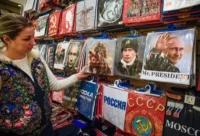
La UE y Ucrania si gana Trump
La Unión Europea debe prepararse para una victoria de Donald Trump. Con la guerra abierta en Ucrania -probablemente en el momento más crítico para la posición defensiva de este país y ante el chute de confianza que a Putin le ha brindado su reelección-, el riesgo para la seguridad y para el mantenimiento del apoyo a Kiev es alto si al mismo tiempo Europa debe afrontar una crisis dentro de la OTAN y con una eventual Administración republicana. Una crisis como la que ya se produjo con Trump a lo largo de su mandato, especialmente durante sus visitas a Europa en 2017 y 2018.… Seguir leyendo »


















